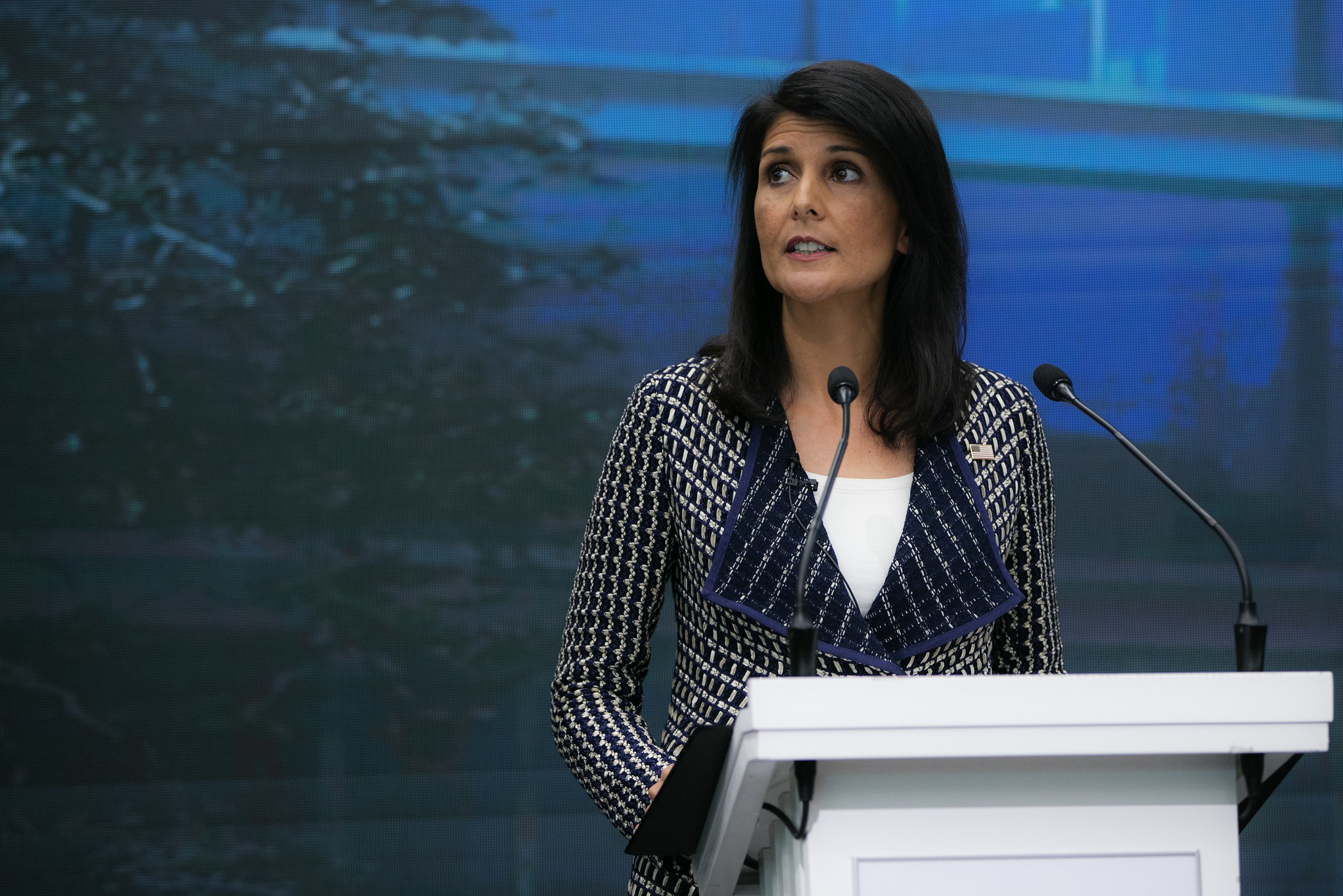
Nikki Haley Sent Classified Emails on an Unclassified Email System
Documents obtained by American Oversight suggest that Haley used her less-secure, unclassified email for communications about a 2017 North Korean missile launch because she had forgotten the password for her classified email system.

In July 2017, shortly after a North Korean missile launch, then-UN Ambassador Nikki Haley sent multiple emails containing classified information on an unclassified email system. Those emails were obtained by American Oversight through Freedom of Information Act litigation and reported on by the Daily Beast on Wednesday, and have prompted widespread outrage from those noting the distorted attention given to former Secretary of State Hillary Clinton’s email use.
In the span of just over five hours, Haley sent at least five emails containing classified information apparently related to North Korea’s test launch on July 4, 2017, of an intercontinental ballistic missile (ICBM). The documents also suggest that Haley intentionally used her less-secure, unclassified email for these sensitive communications — on a matter of great importance to U.S. national security — because she had forgotten the password for her classified email system.
During the Obama administration, State Department officials — including, most notably, Clinton — were the subject of intense public scrutiny and criticism for having used unclassified systems to send and receive protected information. Indeed, President Donald Trump continues to criticize the previous administration for just that, tweeting about it as recently as this past summer.
But less than a year after chants of “Lock her up!” rang out at Trump campaign rallies, the country was facing escalating tension with North Korea. North Korean state media reported that the missile it had just tested was capable of striking the “heart of the United States” with “large heavy nuclear warheads,” only making more obvious the serious U.S. national security implications of the test launch. The U.N. Security Council called an emergency meeting for the following day, July 5.
American Oversight filed FOIA requests and eventually sued for records related to the missile launch, and among the documents provided by the State Department were the five emails, four with the subject line of “DPRK” (Democratic People’s Republic of Korea). The State Department determined that all five of these emails — as well as the emails her staff sent in response — contained classified information, signified by the use of B1.4 redactions. Redactions marked “1.4(D)” indicate classified information related to U.S. foreign relations and activities, including confidential sources, and those marked “1.4(B)” concern classified foreign government information.
That an official as senior as Haley sent emails regarding a matter of such immense national security significance — a matter foreign adversaries would likely be interested in — on an unclassified system at a sensitive time raises serious concerns. For instance, did foreign actors gain access to this classified information? And has Haley inappropriately used the unclassified system more broadly or on other occasions? American Oversight’s FOIA request in this instance was narrow in terms of both time frame (two weeks) and subject matter (communications on unclassified systems about North Korea) and captured only a small slice of Haley’s unclassified system emails.
The emails also suggest the possibility that other senior officials sent classified email on unclassified systems. Haley sent an email on July 4 in which she apparently copied a note from another official, with the subject line “From Japan” and the salutation “Hello Nikki.” Although the entirety of the message is redacted due to its subsequent classification determination, the informality of the greeting and the fact that Haley deliberately transferred this note into her email (there is no “forwarding” indication) to send to her senior staff suggests it originated with another very senior official — and that there could be other emails that don’t belong on the unclassified systems.
The records State produced also shed light on external communications of Haley’s staff soon after the North Korean missile launch. At a UN Security Council meeting, Haley had told her Russian counterpart, “If Russia is in need of any intelligence showing that the rest of the world sees it as an ICBM, I am happy to provide it.” On July 8, a reporter for a Russian state-run media organization reached out to Haley’s then-communications director to ask whether the U.S. Mission to the UN had circulated intelligence information about the launch.
This inquiry apparently prompted Haley to consider her offer more seriously, as she then forwarded to her then deputy, Jon Lerner, and her chief of staff, David Glaccum, with a question about whether it would be worth sharing the information with Russia. Subsequent email exchanges show that Haley’s staff then worked to set up a briefing for Russia on the information, and Haley’s calendars, which American Oversight obtained in response to a separate FOIA request, show that they may have produced this information on July 17, in a Security Council briefing on the ICBM launch.
We are continuing to investigate Haley’s email practices during her tenure at Trump’s State Department, including her use of personal email and any communications with the president’s personal lawyer Rudy Giuliani or former National Security Advisor Michael Flynn, both of whom she held meetings with, according to her calendars.